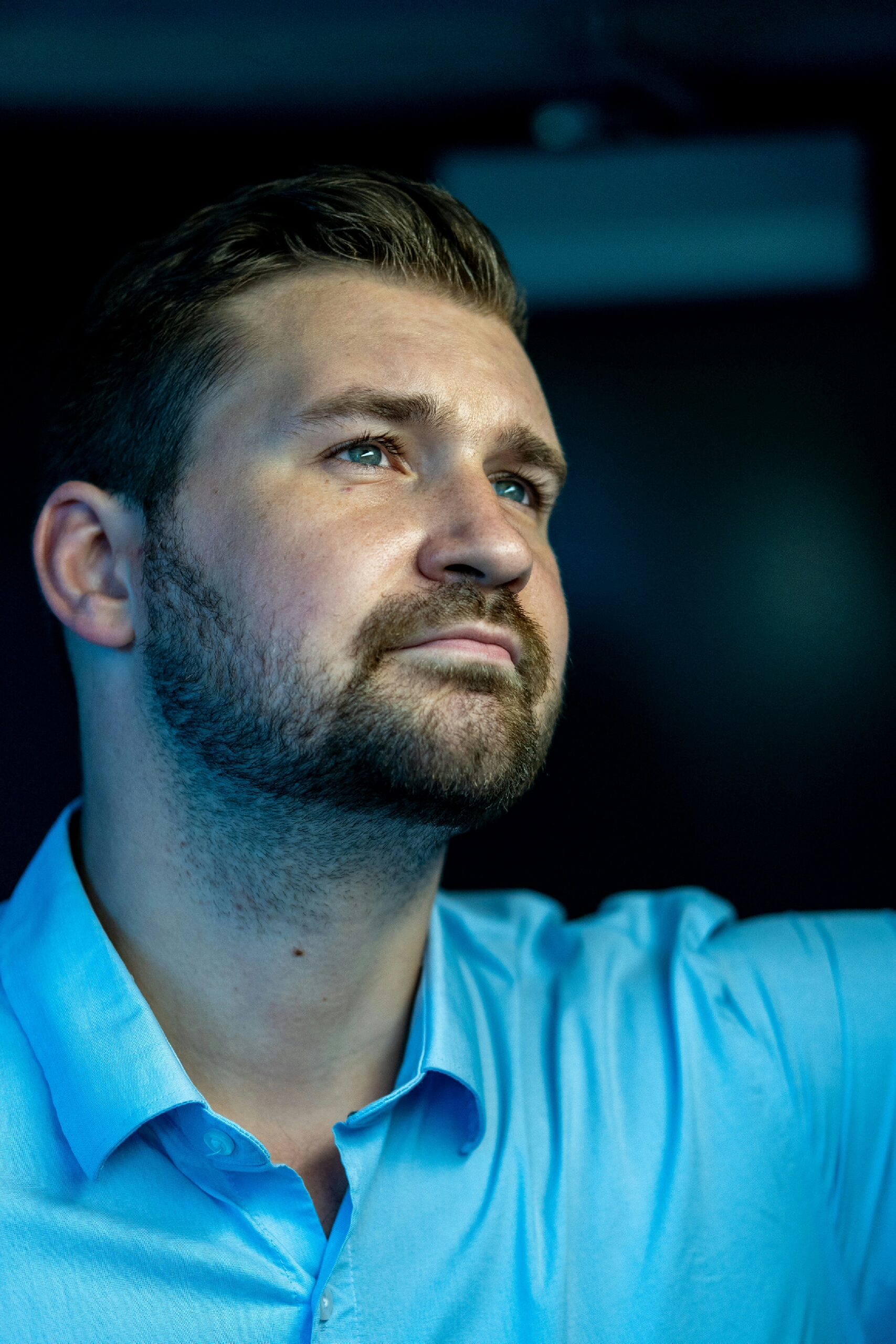Genesis of a passion: A confluence of disciplines
Every scholar’s journey begins somewhere.
For graduate student Geordi Frere, his starting point was an ardent love for the mathematical precision of physics. However, a surprising detour sent him into the world of organic chemistry. “I especially enjoyed physics because it was logical; I found it intuitive,” Frere remembers. “But my whole perspective changed when I took second-year organic chemistry. Finally seeing and understanding how electrons rearrange and shuffle around during a reaction, and knowing how to bring these changes about in a practical lab setting was really exciting. It took some effort, but after a certain point my eyes really opened, and I could intuitively understand the beautiful dance of organic reactions.”
This enlightening discovery was more than just an academic shift. It revealed to Frere the artistic soul of science. “Organic chemistry is a deeply creative art,” he explains. “It’s the thrill of creation at the molecular level: carefully adding different reagents, watching the colours change as bonds are literally being made and broken by the trillions as you dispense that liquid, seeing crystals emerge from solution as beautiful prisms or rods. A lot of these molecules have never existed before, so every reaction is like watching history in the making.”
Currently, Frere is pursuing his PhD in synthetic medicinal chemistry under the joint supervision of Professor Patrick Gunning and Professor R. Scott Prosser. Before the towering achievements of his PhD endeavours, Frere laid a robust foundation during his undergraduate years. He completed his bachelor’s degree at the University of Toronto Mississauga (UTM) in 2019 in biological chemistry. This unique combination equipped him with a holistic understanding of molecular interactions.
Outside the classroom, Frere was a dynamo. He actively engaged in student-led seminars, immersed himself in workshops, and even represented his department at national scientific conferences. This was a period of immense growth, during which he not only accumulated knowledge but also honed vital skills like public speaking, teamwork, and leadership.
Frere’s ongoing research centres around creating covalent protein degraders, which are innovative molecules tailored to target specific proteins within cancer cells, destroying them and preventing them from driving cancer. “The vast majority of drugs in the clinic bind reversibly to their protein targets and inhibit their functions, but cancer cells often find ways to gain resistance to these molecules by quickly digesting and excreting the drug and making more and more of the cancer protein,” says Frere. “A covalent degrader overcomes both of these challenges by irreversibly attaching to the protein so it can’t be excreted and not only inhibiting the protein but completely destroying it, including any more protein that the cancer cell tried to make.”
Frere’s vision extends far past the lab setting. As a member of the University of Toronto’s Precision Medicine Initiative (PRiME) and the UTM Association of Graduate Students (UTMAGS), he forged bridges across faculties and disciplines. Describing his time with PRiME, Frere said, “I’ve been fortunate to connect with and discuss my research with many researchers across diverse faculties that I wouldn’t have otherwise ever met. Since joining, I served on the inaugural PRiME Trainee Advisory Committee and have participated in a lot of their events. I’ve listened to talks from diverse areas and I have a better understanding of the broader research priorities and expertise throughout the UofT network.” In UTMAGS, Frere transitioned from a mere participant to the Academic & Professional Initiatives Director, assuming pivotal roles that allowed him to mould the academic future of his peers.
These affiliations sculpted Frere into a multifaceted scholar. He became a beacon of inspiration, a mentor, and a true visionary, constantly striving to elevate the entire academic community. Medicinal research, for him, is an urgent calling. The aim isn’t merely to get another article in a prestigious journal or climb the academic ladder—it’s about making a genuine difference.
“Coming from a background in which I really cared about improving human health, I [wanted] to make sure that the molecules I made had a chance of making a measurable impact,” says Frere. “Making molecules is super fun and I can run reactions all day, but I wanted to make molecules with a purpose.”
After completing his PhD, Frere looks to find a postdoctoral position in chemical biology, “where I can use my skills in synthetic chemistry to approach grand challenges in biology from a unique angle and develop innovative solutions, whether that be a new therapeutic strategy, a new chemical technology for drug discovery, or uncovering fascinating and yet-unknown facets of cancer biology.”
For students looking to pursue studies in the chemical sciences, Frere has this advice: “Don’t make life decisions out of fear, and don’t rule out options you’re passionate about just because they’re uncertain. Life is unpredictable. But if you back up your talents and passions with hard work and a desire to persevere, few paths will be closed to you.”
Frere’s story is a harmonious blend of academic prowess, leadership, and a profound commitment to bettering the human condition. As the field of medicinal chemistry evolves, it eagerly awaits trailblazers like Frere to chart the way forward.

